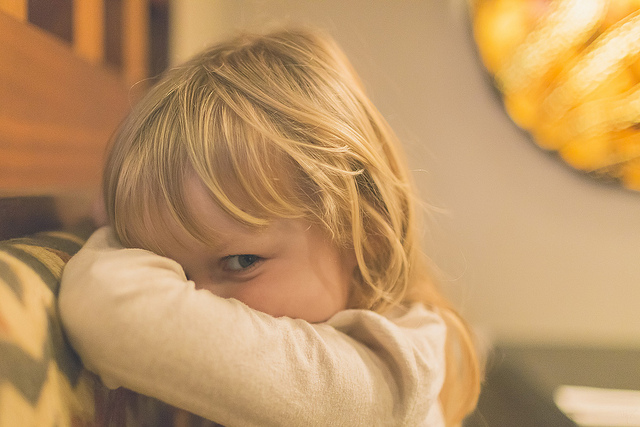Photo credit: Wei-Feng Xue
Children and divorce can be a volatile mix.
Like you, your child must also adjust to the consequences of your separation. This process of comprehension may be easy to spot in the behaviour of your child. They could resist your authority as a parent, become isolated, exhibit increased anger or spend more time with friends than at home.
On the other hand, you may notice little change in your child’s behaviour. Just keep in mind that there is likely a muddle of mixed emotions coming to the surface away from home – for example, in the classroom.
Whatever their coping mechanism, children are likely to confront five fundamental feelings after divorce: apprehension, displacement, confusion, guilt and false hope.
Here’s what you can do to help your children through.
Apprehension
While your child may have a vague idea of what separation and divorce mean, the real-life consequences of separation is uncharted territory. It is easy for them to be sucked in by representations of divorce seen on television, or by stories overheard in the playground.
What you can do
- Make sure you are open with your child about what separation is. Explain the consequences directly; don’t try to sugar-coat the fact that you and your partner are now living apart. At the same time avoid representing your separation as the end of your family unit. Reassure them that while you are no longer living under the same roof, your are still a family.
Displacement
In many cases, separation translates to a total life-change for kids. This may mean moving house, changing schools or cutting off from some family and friends – all changes that your child will need to adjust to quickly, however reluctant they are to do so.
What you can do
- Try to maintain a normal routine for your child. Ensure that they attend school every day, eat regular meals and have a bed time. This will keep a sense of normality about your child’s life, even if it feels like everything is shifting around them, and will make it easier for them to adjust to whatever changes are taking place.
Confusion
Like you, your child will have different emotional reactions to your separations, ranging from heartbreak to resentment to relief. Unlike you, your child may not have the capacity to comprehend this mismatch of feelings. As a result, they may ultimately feel overwhelmed. This state makes children and divorce a dangerous combination.
What you can do
- Simply ask your child how they are feeling. Although they may not know the answer, it will let them know that when they are ready to talk, they can come to you.
Guilt
Many children will instinctively feel that they were the reason for their parents’ separation; that if they had been better behaved or paid more attention to the rift between their parents, they could have stopped their parents from breaking up.
What you can do
- Reassure your child that they have done no wrong. They are perfect the way they are, and your separation is no way their fault. Most importantly, reinforce that they are loved unconditionally by you and your ex-partner. Although your family’s circumstances have changed, there is nothing that could ever change that.
False hope
Just as child may believe that they are responsible for the break-down of your relationship, they may also believe that they have the power to fix it. You may notice your child talking up the merits of your ex-partner, or prolonging situations where you and you ex are in each other’s presence – for example, handover and pick-up times.
What you can do
- While your child’s hopes are in the best interests, it is important not to allow your child to become disillusioned and believe that their family may be about to get back together. Clarify to your child that although you and your ex-partner are still friends, the relationship is not going to reform. While this may be a tough pill to swallow, it is best to quell any lingering hope early, to save greater pain in the future.
The road to understanding divorce is a rocky one for children.
By following these tips, you can make their journey as smooth as possible.



